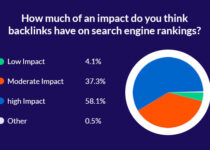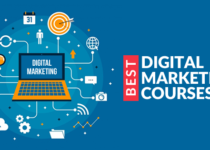Marketing with Integrity: Why Ethics Matter More Than Ever
Marketing with Integrity: Why Ethics Matter More Than Ever
In today’s fast-paced digital landscape, marketing has become more sophisticated than ever. From data-driven strategies to highly targeted advertising campaigns, businesses have unprecedented tools at their disposal. But as marketing techniques grow more powerful, so does the ethical responsibility that comes with them. Striking a balance between persuasive marketing and ethical practices is not just important—it’s essential for long-term success.
Why Ethics Matter in Marketing
Ethics in marketing refers to the principles and standards that define acceptable conduct in promoting products and services. These include honesty, fairness, transparency, and respect for consumer privacy.
When marketing lacks ethics, it can result in misleading claims, invasive data collection, manipulation, and in some cases, outright fraud. Not only can this damage a company’s reputation, but it can also erode consumer trust—something incredibly difficult to rebuild.
Trust is the currency of modern business, and ethical marketing is the foundation upon which that trust is built.
Real-World Examples of Ethical Dilemmas
Let’s consider a few real-world scenarios that highlight the ethical tightrope marketers often walk:
Greenwashing: Companies exaggerate their sustainability efforts in order to attract environmentally-conscious consumers. This misleads the audience and undermines the efforts of genuinely sustainable businesses.
Hidden Fees and Fine Print: Advertising a product as “free” or heavily discounted while hiding significant terms and fees can lead to consumer backlash and legal trouble.
Manipulative Design (Dark Patterns): Some websites use misleading interface designs to trick users into subscribing, sharing data, or buying something they didn’t intend to.
Each of these practices may yield short-term gains, but they pose long-term risks to brand credibility and customer loyalty.
Digital Marketing and Ethical Boundaries
In digital marketing, the stakes are even higher. Marketers now have access to detailed consumer data through cookies, social media behavior, and purchase history. While this data can be used to tailor content and ads more effectively, it also raises significant ethical questions:
Are users aware of how their data is being used?
Did they give meaningful consent?
Are the collected data being sold or shared without proper disclosure?
Transparency and user control are key here. Ethical marketers should prioritize clear communication about data use, offer easy opt-outs, and avoid using sensitive data to manipulate behavior.
The Psychology of Persuasion: Where Is the Line?
Good marketing often taps into psychological principles—scarcity, urgency, social proof, fear of missing out (FOMO). These techniques can be powerful drivers of action, but they also walk a fine ethical line.
Is it wrong to create a countdown timer for a limited-time offer? Not necessarily.
But is it unethical to use a fake countdown that resets every time a user visits the page? That crosses the line.
The difference lies in intent and transparency. Ethical marketing persuades without deceiving.
How Brands Can Practice Ethical Marketing
To maintain integrity while still achieving business goals, companies can implement the following strategies:
1. Be Transparent
Be open about what your product does—and what it doesn’t. Avoid overpromising. Honesty in advertising creates loyal customers and reduces refund requests and complaints.
2. Respect Privacy
Make privacy policies easy to understand. Don’t hide behind legal jargon. Always ask for consent before collecting or using personal data.
3. Educate, Don’t Manipulate
Create marketing content that informs rather than deceives. Empower customers to make their own choices. Educated consumers are more likely to become long-term brand advocates.
4. Audit Your Content and Campaigns
Periodically review your marketing campaigns to ensure they align with ethical standards. If something feels wrong, it probably is. Ethical audits help avoid PR disasters.
5. Foster a Culture of Responsibility
Train your marketing team to recognize ethical red flags. Encourage open discussion and create clear guidelines for what’s acceptable.
The Business Case for Ethics
Ethical marketing isn’t just the right thing to do—it’s smart business. Consumers today are more informed, socially aware, and vocal than ever. A single unethical campaign can lead to boycotts, lawsuits, and lasting reputational damage.
On the flip side, brands known for integrity—like Patagonia, Dove, or Ben & Jerry’s—enjoy fiercely loyal customer bases and positive brand equity.
In the age of cancel culture and online reviews, reputation can be built or destroyed in a matter of days. Ethical behavior helps insulate companies from these risks.
Final Thoughts
The intersection of ethics and marketing is a delicate balance—but one worth mastering. In a world saturated with advertising and aggressive persuasion, businesses that stand for something and practice honest marketing stand out.
Ethical marketing builds trust, fosters loyalty, and promotes sustainable growth. As consumers grow more savvy and socially conscious, companies must rise to the challenge—not only to succeed, but to lead.
> In the end, the most powerful marketing tool is integrity.


